
Like most passionate gardeners, I am always looking for new plants. Whether I'm visiting a friend's garden, hiking a nature trail or just driving down the road, when I spot an interesting plant, I must check it out. This usually leads to wondering if I could grow it at home. That's why I always have pruners, paper towels, plastic baggies and a bottle of water handy to take a cutting.
In propagation from cuttings, a gardener cuts off a piece of an annual, perennial, tree or shrub and grows an entirely new plant from that part. There are three types of cuttings: stem, leaf and root. Stem cuttings form roots and leaves; leaf cuttings form roots and stems; root cuttings form stems and leaves.
The concept is simple. Placing the growth tissue within a leaf or stem in direct contact with soil will initiate the formation of roots and spur growth of the other missing part. Buried bits of fleshy roots without shoots will respond by forming new stems and leaves. All three methods produce the same result: an exact clone of the plant from which the cutting was taken.
TAKING STEM & LEAF CUTTINGS
The best stem cuttings come from the younger stems of woody plants or any stem from an herbaceous plant. Stem cuttings of coleus, dracaena and geranium are practically guaranteed to work.
Leaf cuttings can include or exclude the petiole (the stalk connecting leaf to stem). The fleshier the leaf, the better; succulents like sedum (Sedum), jade (Crassula) or snake plant (Dracaena trifasciata, formerly Sansevieria trifasciata) are particularly easy because their leaves store moisture and have lots of growth tissue.
Before you take a cutting, sanitize your cutting tool with rubbing alcohol to prevent the transfer of pathogens from the knife or pruners to the plant, or from plant to plant when taking multiple cuttings.
This story is from the May - June 2024 edition of Horticulture.
Start your 7-day Magzter GOLD free trial to access thousands of curated premium stories, and 9,000+ magazines and newspapers.
Already a subscriber ? Sign In
This story is from the May - June 2024 edition of Horticulture.
Start your 7-day Magzter GOLD free trial to access thousands of curated premium stories, and 9,000+ magazines and newspapers.
Already a subscriber? Sign In

Pot It Up
Shake up the containergarden with theseNorth America –native perennials

THE GARDEN PATH TO PERDITION
I WAS CRUISING RIGHT ALONG, feeling okay about myself, when I came across a list of the Seven Deadly Sins.
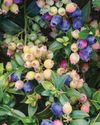
A Productive PATIO
Tiny fruit, vegetable and herb plants help gardeners maximize any sort of growing space
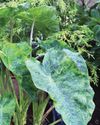
TROPICAL FUSION
A FUSS-FREE APPROACH TO USING BOLD TROPICAL PLANTS IN ANY TEMPERATE GARDEN

WINTER READING
Pass the time with any of these inspiring books
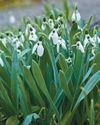
SENSING A PATTERN
Greg Coppa reflects on an odd weather year and what continued warming may mean for his Rhode Island garden
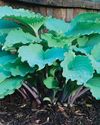
TOP-PRIZE PERENNIALS
A foliage masterpiece for shade and a late bloomer for sun

MARK WESSEL
What's new for fruit and vegetable gardeners?
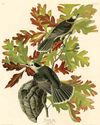
KINGS OF THE NORTHERN FORESTS
A look at the trees, shrubs and perennial plants that bolster life in Ecoregion 5

PROJECT FEEDERWATCH
Gardeners can help scientists know just where the birds are in winter